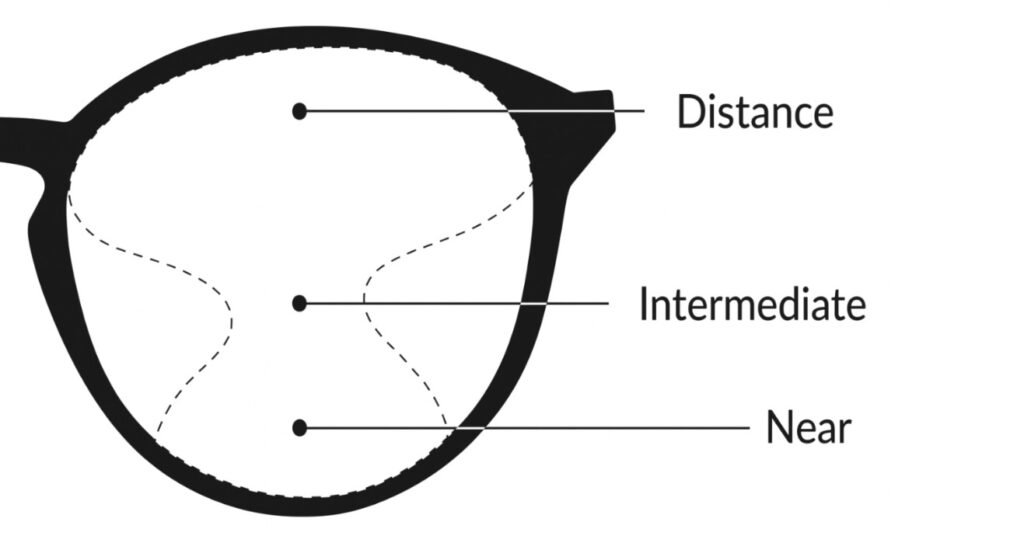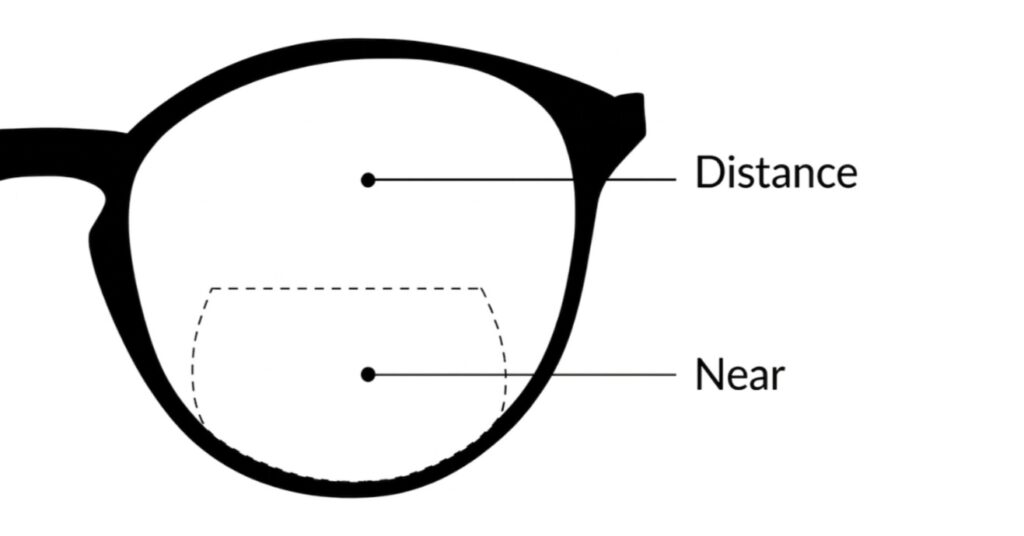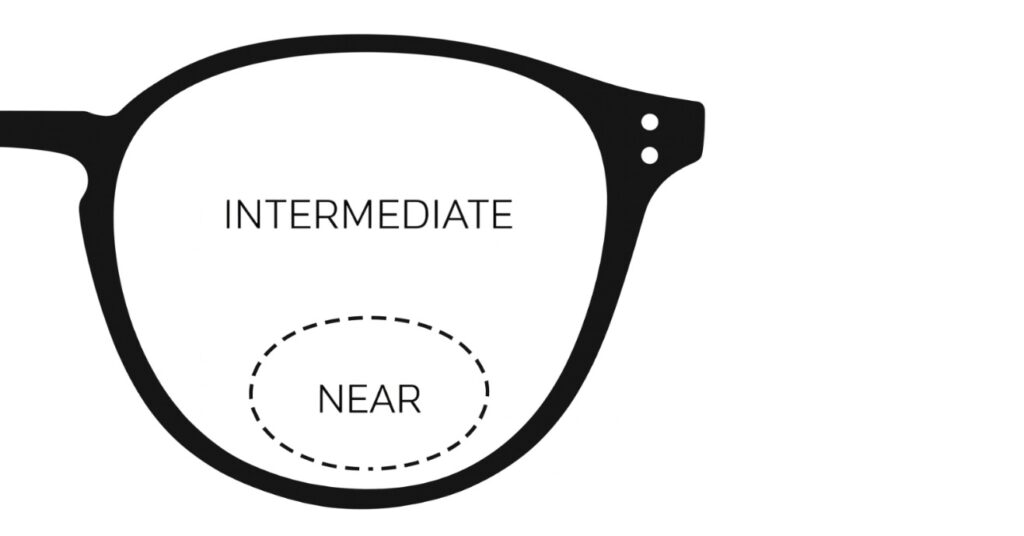When your eyes require different prescriptions for near and far vision, multi-focal lenses offer seamless clarity. But not all multi-focals are created equal—and choosing the right one can dramatically improve your daily comfort and performance.
At our boutique optometry practice, we take pride in customizing lenses to fit your lifestyle, not just your prescription. Below, we’ve outlined the main types of multi-focal lenses—bifocal, progressive, and occupational—with their benefits, limitations, and ideal uses.
Progressive Lenses
Progressives offer a smooth gradient of power from distance at the top to near vision at the bottom—without visible lines.

Pros
- Seamless vision at all distances: near, intermediate, and far (no visible line)
- Sleek, modern appearance
- Ideal for digital lifestyles
Cons
- Slightly longer adaptation period
- Not ideal for long-term computer use
- Premium versions are more expensive
Best For
- People who want “all-in-one” vision without visible lines
- Active professionals who shift focus frequently between screens, people, and papers
- Hobbies like cooking, photography, traveling, and playing music
Professions That May Benefit
- Teachers
- Executives
- Healthcare professionals
- Travelers and pilots
Bifocal Lenses
Bifocal lenses have two distinct zones: a lower segment for near vision (like reading) and a top segment for distance vision.

Pros
- Simple and effective for clear near and distance vision
- Fast adjustment for many wearers
- Affordable and widely available
Cons
- Visible line between segments
- No correction for intermediate (computer) distance
- Can cause “image jump” when shifting focus
Best For
- People who cannot adjust to progressives
- People who primarily read and drive, but rarely need computer-distance correction
- Hobbies like knitting, woodworking, or reading
Professions That May Benefit
- Drivers
- Mechanics
- Cashiers (when looking down at a register and up at customers)
Occupational/Computer Lenses
These lenses are optimized for near and intermediate vision (like reading and screen use), offering wider visual zones where you need them most. Distance vision is typically de-emphasized.

Pros
- Wider, more comfortable intermediate and near zones
- Ideal for screen-heavy tasks or detailed work
- Reduces neck and eye strain
Cons
- Not suitable for full-time wear (especially driving)
- Typically requires a second pair of glasses for outdoor/distance use
Best For
- People who spend extended hours at a desk or doing close work
- Hobbyists and professionals who need crisp vision at arm’s length
- Hobbies like model building, painting, or programming
Professions That May Benefit
- Office workers
- Graphic designers
- Writers and editors
- Surgeons or dental professionals
- Architects and engineers
Occupational lenses come in 3 main variations, optimized to your needs: “Book” lenses are ideal for reading/computers/devices, “Desk” lenses add clear vision out to your cubicle of small office, and “Room” lenses allow to focus from close-up reading all the way out to 14 feet away.
Which is Right for you?
Choosing the right multi-focal lens depends on your unique lifestyle, work habits, and visual preferences. We’re here to help you navigate that choice with precision and personal attention.
Book your personalized lens consultation today and let us help you see better—at every distance and in every moment.
Schedule your eye exam or private lens consultation by calling 415-673-2020 or requesting online here.
Look Sharp. See Clearly. Stay Focused.
— Your Optometry Team at Acuity Vision Optometry Boutique


